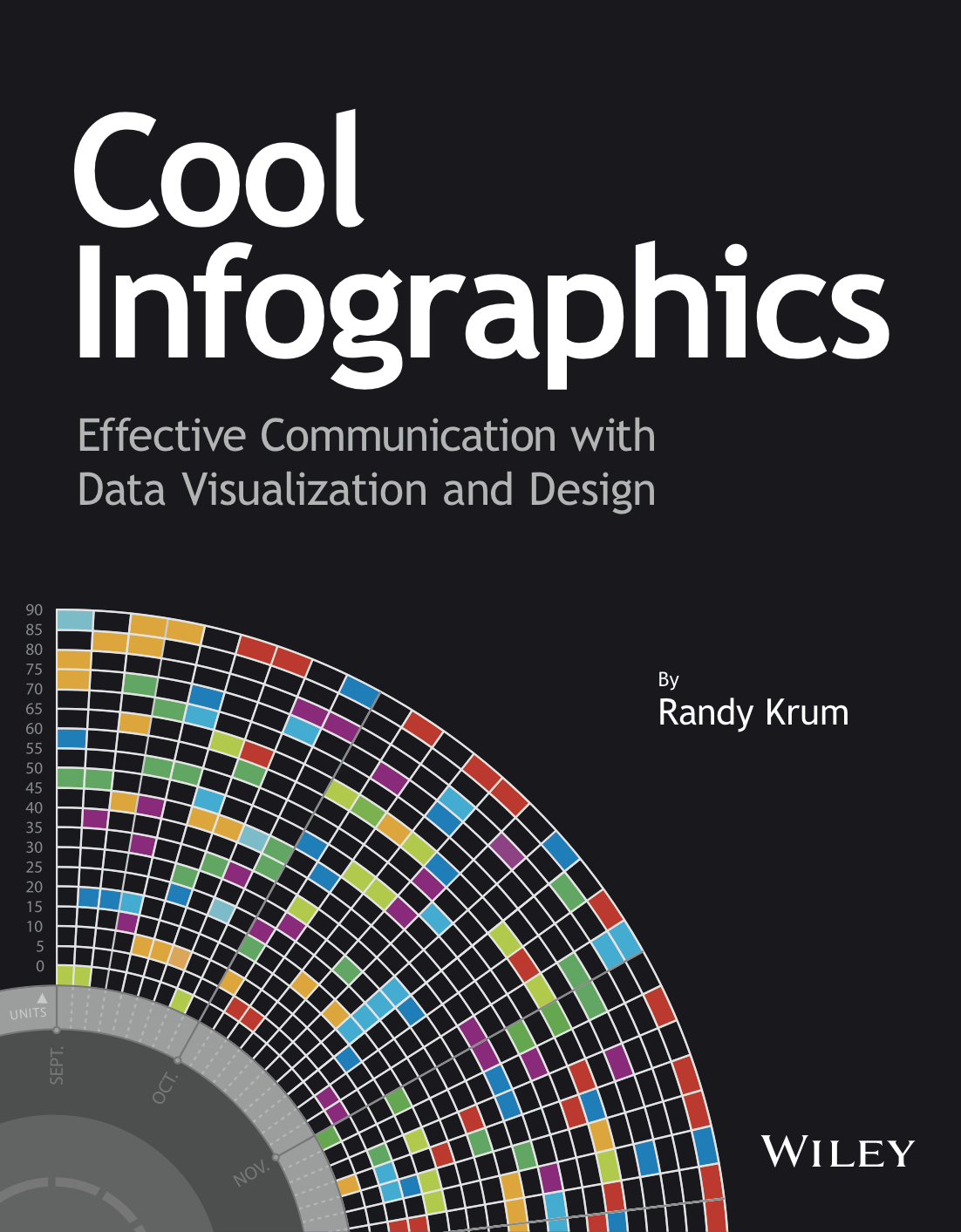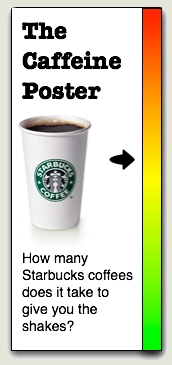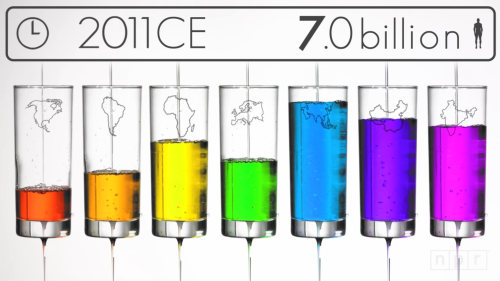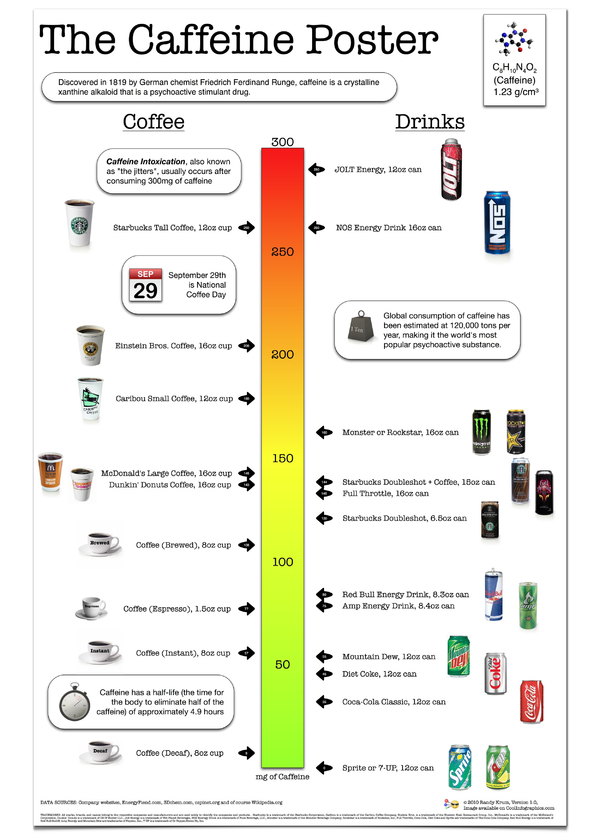Ben Harrow - What Makes an Infographic Cool?
Guest Post by Ben Harrow
Infographics are a visual representation of engaging and enlightening statistics or facts - as Randy puts it, “infographics turn data into information”. Now, a lot of interesting people have said a lot of interesting things about what makes an infographic ‘cool’ - but sometimes, you just have to trust the numbers.
Infographics aim to go ‘viral’ - to spread to and engage with as many people as possible. However, with the sheer amount being produced now, it’s incredibly difficult to stand out and it takes something special to really make a mark in the popularity stakes.
So, what’s wrong with going simple? Let’s look at the coolest infographics - by the views.
The Top 3 - News by Design
News by Design is (obviously) our project - and we basically want to show off the infographics that tell a newsworthy story in a beautiful way.
The most viewed pieces since our inception?
- How we hit 7 billion
- Beep - a f**king infographic (beware - it features lots of swearing)
- The ‘big infographic’ trend
The top 3 certainly cover the bases - with a video infographic with some real-world interaction and some huge, huge infographics featured - as well as a whole heap of swearing. But, that number 1 definitely shouts out about one thing that can make an infographic cool - a totally unique approach.
I’m very happy that a video infographic (of sorts) topped the table - it immediately brings to light the benefits of doing something hugely creative and putting some thought (and love) into a project.
And yes, for an infographic to be cool, it doesn’t have to be a straight forward up and down affair - visualising the influence of birth and death rates simultaneously using drips and drops makes the constant ebb and flow of population a beautiful and instantly understandable thing.
The subject matter also brings to light another point - the rapid global population increase is a very serious topic, and covering important issues is a great way to immediately engage viewers and appeal to a specific audience, especially if you break it down in an attractive and digestible way.
In short, this infographic tells you that the very coolest examples are original, innovative, and can, of course, feature some serious or controversial subject matter. That, and creating something utterly beautiful always helps.
The Top 3 - Visual.ly
Visual.ly is one of my personal favourite resources for finding quality infographics - most designers worth their salt know that adding their designs to the giant Visual.ly database will help gather views and begin the sharing process.
The three most viewed pieces in the history of Visual.ly?
Now, this makes for an interesting Top 3 - a somewhat standard-form infographic, a flow-chart and a poster all make the grade here. Although not all ‘infographics’ per-say, the visual representation of jokes, stories and, well, alcohol, are massively engaging for an audience when done correctly.
But, Visual.ly’s own infographic nabbed the top spot - a sleek and slick design that mirrors the Visual.ly house style and colour scheme is a plus, and the vertical flow of the information, guided by the neon pink line, is nothing out of the ordinary but definitely effective.
What matters here are the numbers - carefully explained and intricately entwined statistics that map out the likelihood that you exist as you are today. Now, ignoring the controversy in the math itself, (check the comments for some elaboration) it is a very cool concept, and philosophical content is always particularly engaging as it encourages the viewer to think rather than just read.
This infographic shows off the appeal of blowing the reader’s mind - introducing ideas and concepts that reflect on everyday life but will create endless amounts of talk value (as soon as 1 in 10^2,685,000 appears on page, you know you’re talking about something pretty intense).
However, a cool infographic definitely needs a helping hand - and Visual.ly owning the most viewed infographic on their entire site speaks volumes about distribution. A great infographic won’t always sell itself, and it takes hard work to get the word out there.
The Top 3 - Cool Infographics
What kind of guest-blogger would I be if I didn’t hat tip to our gracious host? You already know what Randy does, it’s why you’re here - Cool Infographics collects and reviews infographics to see if they cut the mustard.
And the three that really made the grade?
Now, despite more fun with alcohol, this Top 3 has something else of interest - the interpretation of official statistics and data. The comparing hurricanes graphic, although somewhat basic in design, looks at data that effects people and is newsworthy in itself - and presents it in a quick to digest format. Always appealing.
But one of Randy’s own doodles made the grade here - the already three-and-a-half years old Caffeine Poster.
Randy admits in the ‘making of’ posts that he isn’t a graphic designer - but that isn’t what’s important in this graphic.
When it was produced, the art of the infographic was still a relatively new thing, and there weren’t many truly innovative pieces floating around. Randy took something that is a widely discussed media topic, is important in our everyday lives (or at least, influential and awakening - caffeine) and is directly comparable from one product to another, and combined it to make something instantly shareable.
‘Caffeine intoxication’ is a terrifying prospect - otherwise known as the ‘jitters’ you get after ingesting 300mg of caffeine (or one can of Jolt energy!). That, and I had never thought of caffeine in terms of chemistry and biology - but its ‘half-life’ is an interesting topic (4.9 hours is the time it takes for your body to flush out half the caffeine ingested).
What makes this infographic cool is the talk value - looking at your friend who’s drinking a tall Starbucks coffee and going ‘you’re drinking 5 cans of coke in caffeine right there’, or looking at your second can of Monster and preparing for the jitters. That, and the real-world application - discussing something that is relevant to everyone in a way they have not seen or heard before.
Drawing comparisons helps too - allowing the reader to immediately compare and rank recognisable objects or themes is a tool that can never be under-estimated. Because it works so fiercely well.
So, what makes an infographic cool?
Let’s go back through the list.
Cool infographics are original, innovative and cover important subjects.
They provide talk-value, draw comparisons, focus on real-world topics and more often than not blow the reader’s mind.
Throw in some quality design, functional layout, and some healthy distribution, and you’re probably well on the way.
And of course, make it beautiful.
___
I have to admit, I’m surprised that innovative visual elements and really intuitive/interactive design didn’t feature particularly strongly in these lists - is the idea and the concept more important than the visual product? Is the story more important than the vehicle when it comes to making a really cool infographic?
I’d love to know your thoughts on those most viewed lists - do you think they reflect the world of infographics well, or is there something major missing?
Ben Harrow is the Digital Editor at UK-based national news agency 72point, selling in stories to the national newspapers and creating infographics alongside. He is also the co-founder of News by Design, which praises the infographics that tell brilliant stories in an engaging visual way.
LINKS:
Twitter: @newsbydesignuk









 Randy
Randy




Reader Comments